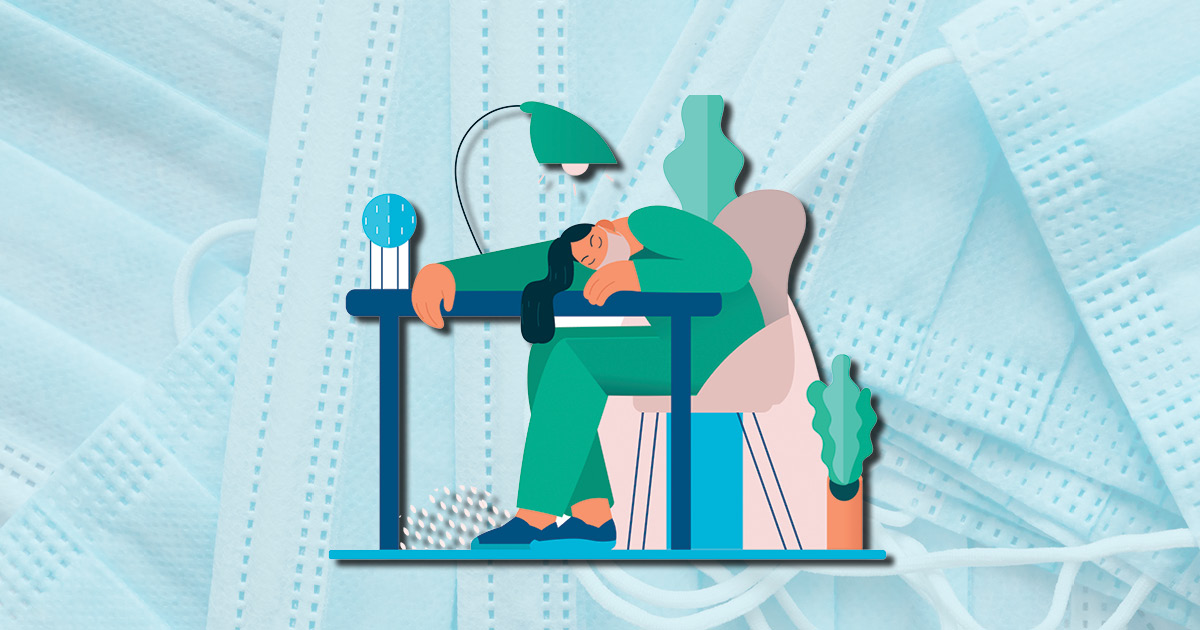
Have you come across friends and family members who feel demotivated due to restrictions to control the spread of COVID-19? Have you noticed people not adhering or paying attention to social distancing and mask-wearing in public? Did you come across friends or families planning to attend or host a holiday dinner or party because they could not resist reuniting with loved ones? These are all signs of pandemic fatigue, a notable reason for the continued surge in COVID-19 infections across the world.
According to the World Health Organization (WHO), pandemic fatigue develops over time in response to social, political, cultural, and economic factors in a community. As COVID-19 restrictions continue, people feel exhausted, and some people have stopped taking precautions the way they did in the early spring when the pandemic started.
Many people have lost their jobs due to lockdowns. Those still employed are either lucky to continue work from home or are essential workers. Some schools reopened in the fall but are again transitioning to online instruction, adding stress on children and parents. According to UCLA Health, social isolation, lack of recreational opportunities, financial hardships, and continued fear of a prolonged pandemic has increased anxiety, loneliness, and depression — symptoms of pandemic fatigue.
Pandemic fatigue can also cause pandemic denial, which results from medical misinformation, scientific skepticism, the tendency for conspiracy theories, or a defense mechanism against COVID-19 anxiety. Misinformation on the nature of the disease has unleashed tons of home remedies for COVID-19.
Pandemic denial is particularly dangerous since it undermines the severity of the situation, resulting in faltering disease control and the spread of infections. It boosts “pandemic anger,” and people getting upset over mandated mask-wearing and social distancing measures, believing that it impinges their civil liberties.
Today, as the death toll continues to rise and stricter restrictions are enforced, people anxiously wait to receive a vaccine. Until that becomes a reality, we must try to combat pandemic fatigue using some simple strategies, as recommended by UCLA Health:
- Take care of your body by getting enough sleep and eating nutritious food.
- Limit news consumption to reduce stress.
- Lower stress by exercising, taking nature walks, reading, meditating, or listening to music.
- Connect with friends and family online, on the phone, and through letters and cards.
- Use positive self-talk to replace negative thoughts.
- Create new traditions (like a picnic in the backyard), start a self-care routine, or learn a new skill.
- Acknowledge your feelings and connect with a healthcare provider if emotional health gets in the way of your daily activities.
The Issaquah Highlands community provides excellent solo and family recreational opportunities. Walk, hike, or bike on any of the numerous trails or take a trip to a local park. You can also participate in the community’s virtual activities from the comfort of your home.
Pandemic fatigue is real, but don’t let it get the best of you. Do not lower your guard and do continue listening to the advice of the public health authorities.
Shafaq Babar is a University of Washington Master of Public Health Student and Issaquah Highlands Resident.
Editor’s Note: This piece was submitted to Connections as an op-ed. Opinions expressed in this piece are solely those of the author. Are you interested in contributing to our Issaquah Highlands media? Contact Vicki Grunewald, Highlands Council Media Editor, for more information.





